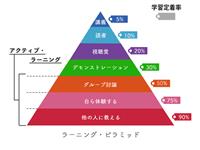Copyright? 2001 by Harcourt,Inc.,All rights reserved,Requests for permissions to make copies of any part of the work should be mailed to
the following address,Permissions Department,Harcourt,Inc.,6277 Sea Harbor Drive,Orlando,Florida 32887-6777.
INTERNATIONAL MARKETING 6e
Newly Emerging Markets
Chapter 23
Copyright? 2001 by Harcourt,Inc,All rights reserved,23-2
Newly Emerging Market Economies
3,4
8,2
1 0,3
1 0,2
3 8,6
2 3,3
1 4 6,4
5,4
1,4 9 0
4,1 0 0
1 1,3 0 0
7,4 0 0
6,8 0 0
4,0 5 0
4,0 0 0
8,3 0 0
A l b a n i a
B u l g a r i a
C ze c h R e p u b l i c
H u n g a r y
Po l a n d
R o m a n i a
R u s s i a
Sl o v a k i a
P o p u l a t i o n ( m i l l i o n s ) G D P p e r c a p i t a ( $ )
There are large disparities in population size and GDP per capita in
the former Eastern Bloc countries.
Copyright? 2001 by Harcourt,Inc,All rights reserved,23-3
A Brief Historical Review
Lenin’s Trade Decree of 1918
Formalized the Soviet foreign trade system as a
state-controlled monopoly,
The system was subsequently adopted by
Central European satellites of the USSR
People’s Republic of China
Centralized economic control (five-year plans)
Unlinked the market forces of demand and supply.
The lack of competition resulted in inefficiencies
and the misallocation of resources.
Distribution channels were poorly
developed.
Copyright? 2001 by Harcourt,Inc,All rights reserved,23-4
State-controlled Monopolies
International trade transactions were
controlled and reviewed by
Foreign trade organizations,ministries of trade,
and state committees
The monopolies resulted in
High levels of bureaucracies
Low standards of living and per capita incomes.
Stagnant low-growth internal economies
Isolation from the Western economies.
Copyright? 2001 by Harcourt,Inc,All rights reserved,23-5
The Shift of the 1980s
Exporting outside of the communist bloc was
encouraged and trade with the West was
emphasized,
Protection from international competition was
removed as Western imports were allowed
entry and foreign direct investment
encouraged.
New Soviet political and economic programs
Perestroika
Glasnost
Copyright? 2001 by Harcourt,Inc,All rights reserved,23-6
The Demise of the Socialist System
From 1989 to 1992:
The Iron Curtain crumbed almost overnight.
The communist empire disintegrated.
Newly Emerging Democracies (NEDs) in Central
Europe and the Soviet Union began shifting to a
market-based economy.
Communist-dominated governments were
removed from political power.
East Germany reunified
with West Germany.
The Soviet Union separated
into autonomous states.
Copyright? 2001 by Harcourt,Inc,All rights reserved,23-7
The Realities of Economic Change in NEDs
Abolishing a centrally planned economy does
not create a market economy.
Laws permitting private sector entrepreneurs
do not create entrepreneurship.
Reducing price controls does not make
products available or affordable.
Fundamental concepts of a market economy
are not always accepted.
Laws and legal protections for property,trade
and banking are not firmly in place.
Infrastructure deficiencies hamper growth.
Copyright? 2001 by Harcourt,Inc,All rights reserved,23-8
Realities of Economic Change…continued
Investment capital shortages are a major
growth constraint.
Unique demand and buying habits exist;
minimal market information is available.
Substantial knowledge resources exist; there
is widespread lack of management skills.
Managers and employees continue to follow
old working patterns.
The lack of a market orientation creates
difficulty in managerial decision-making.
Copyright? 2001 by Harcourt,Inc,All rights reserved,23-9
Adjusting to Rapid Change
Expect resistance to change,Comprehending
and understanding new linkages and
interactions will not occur overnight.
Inefficient firms should go into bankruptcy.
Increased efficiency and productivity will
cause unemployment.
Unemployment will increase as military
personnel are brought home or demobilized.
Emergence of a new entrepreneurial class
will relegate blue-collar workers to second-
class status.
Copyright? 2001 by Harcourt,Inc,All rights reserved,23-10
Adjusting to Rapid Change…continued
Rising and widespread price changes may
cause inflation.
Political and social uncertainty may produce
unanticipated shifts in economic and political
thinking.
The reduced threat of war will change the
economic dynamics of all participants.
Reorientation of trade flows will result as old
relationships are displaced by efforts to enter
global markets.
Copyright? 2001 by Harcourt,Inc,All rights reserved,23-11
Marketing Opportunities and Challenges
Change in the NED’s creates opportunities
for vast market expansions in populations
with huge potentials for consumer demand.
The knowledge of the international manager
is very useful these countries which need
assistance in building their own economies
and expanding internationally.
Problems in NED marketing
Lack of available market research data
Lack of a hard currency
Differences in marketing focus,orientation,
objectives and techniques.
Copyright? 2001 by Harcourt,Inc,All rights reserved,23-12
Sourcing from NEDs
Challenges
Functionally good but poorly finished products
Negative attitudes towards NEDs’ products
Import possibilities limited to industrial products
Protection of intellectual property rights
Opportunities
Uniqueness appeal of NED products
Fully-developed industrial products
Large low-cost skilled-labor pool
Technology transfers
Copyright? 2001 by Harcourt,Inc,All rights reserved,23-13
State-Owned Enterprises (SOEs)
Reasons for SOEs
National security
Economic security
Capital investments required for large industries
Rescue of failing private enterprises
For the greater societal good of the country
Useful for political purposes
SOE effects on international marketing
Inhibit local market entry
Mix the sourcing relationship with policies/politics
engaging in unfair international competition
Copyright? 2001 by Harcourt,Inc,All rights reserved,23-14
Strategic Responses to State-Owned Enterprises
Show benefits of working through private
sector and free-market activities.
International negotiation and government
intervention to,level the playing field.”
Relax antitrust laws so smaller competitors
can cooperate in competing with SOEs.
Persevere in the market for the short term
Enter into joint ventures and cooperative
agreements with SOEs.
Allow for cofinancing of large projects.
Copyright? 2001 by Harcourt,Inc,All rights reserved,23-15
Privatization
Turning government-run businesses to the
private sector results in:
The cutting of government budget costs
The creation of productive,efficient,and
innovative firms offering more choice of services.
Funds,raised from privatization,available for use
in other government projects.
Opportunities for international marketers
Acquire local firms at low cost.
Expand operations from an established base.
Build low-cost manufacturing and sourcing bases.
the following address,Permissions Department,Harcourt,Inc.,6277 Sea Harbor Drive,Orlando,Florida 32887-6777.
INTERNATIONAL MARKETING 6e
Newly Emerging Markets
Chapter 23
Copyright? 2001 by Harcourt,Inc,All rights reserved,23-2
Newly Emerging Market Economies
3,4
8,2
1 0,3
1 0,2
3 8,6
2 3,3
1 4 6,4
5,4
1,4 9 0
4,1 0 0
1 1,3 0 0
7,4 0 0
6,8 0 0
4,0 5 0
4,0 0 0
8,3 0 0
A l b a n i a
B u l g a r i a
C ze c h R e p u b l i c
H u n g a r y
Po l a n d
R o m a n i a
R u s s i a
Sl o v a k i a
P o p u l a t i o n ( m i l l i o n s ) G D P p e r c a p i t a ( $ )
There are large disparities in population size and GDP per capita in
the former Eastern Bloc countries.
Copyright? 2001 by Harcourt,Inc,All rights reserved,23-3
A Brief Historical Review
Lenin’s Trade Decree of 1918
Formalized the Soviet foreign trade system as a
state-controlled monopoly,
The system was subsequently adopted by
Central European satellites of the USSR
People’s Republic of China
Centralized economic control (five-year plans)
Unlinked the market forces of demand and supply.
The lack of competition resulted in inefficiencies
and the misallocation of resources.
Distribution channels were poorly
developed.
Copyright? 2001 by Harcourt,Inc,All rights reserved,23-4
State-controlled Monopolies
International trade transactions were
controlled and reviewed by
Foreign trade organizations,ministries of trade,
and state committees
The monopolies resulted in
High levels of bureaucracies
Low standards of living and per capita incomes.
Stagnant low-growth internal economies
Isolation from the Western economies.
Copyright? 2001 by Harcourt,Inc,All rights reserved,23-5
The Shift of the 1980s
Exporting outside of the communist bloc was
encouraged and trade with the West was
emphasized,
Protection from international competition was
removed as Western imports were allowed
entry and foreign direct investment
encouraged.
New Soviet political and economic programs
Perestroika
Glasnost
Copyright? 2001 by Harcourt,Inc,All rights reserved,23-6
The Demise of the Socialist System
From 1989 to 1992:
The Iron Curtain crumbed almost overnight.
The communist empire disintegrated.
Newly Emerging Democracies (NEDs) in Central
Europe and the Soviet Union began shifting to a
market-based economy.
Communist-dominated governments were
removed from political power.
East Germany reunified
with West Germany.
The Soviet Union separated
into autonomous states.
Copyright? 2001 by Harcourt,Inc,All rights reserved,23-7
The Realities of Economic Change in NEDs
Abolishing a centrally planned economy does
not create a market economy.
Laws permitting private sector entrepreneurs
do not create entrepreneurship.
Reducing price controls does not make
products available or affordable.
Fundamental concepts of a market economy
are not always accepted.
Laws and legal protections for property,trade
and banking are not firmly in place.
Infrastructure deficiencies hamper growth.
Copyright? 2001 by Harcourt,Inc,All rights reserved,23-8
Realities of Economic Change…continued
Investment capital shortages are a major
growth constraint.
Unique demand and buying habits exist;
minimal market information is available.
Substantial knowledge resources exist; there
is widespread lack of management skills.
Managers and employees continue to follow
old working patterns.
The lack of a market orientation creates
difficulty in managerial decision-making.
Copyright? 2001 by Harcourt,Inc,All rights reserved,23-9
Adjusting to Rapid Change
Expect resistance to change,Comprehending
and understanding new linkages and
interactions will not occur overnight.
Inefficient firms should go into bankruptcy.
Increased efficiency and productivity will
cause unemployment.
Unemployment will increase as military
personnel are brought home or demobilized.
Emergence of a new entrepreneurial class
will relegate blue-collar workers to second-
class status.
Copyright? 2001 by Harcourt,Inc,All rights reserved,23-10
Adjusting to Rapid Change…continued
Rising and widespread price changes may
cause inflation.
Political and social uncertainty may produce
unanticipated shifts in economic and political
thinking.
The reduced threat of war will change the
economic dynamics of all participants.
Reorientation of trade flows will result as old
relationships are displaced by efforts to enter
global markets.
Copyright? 2001 by Harcourt,Inc,All rights reserved,23-11
Marketing Opportunities and Challenges
Change in the NED’s creates opportunities
for vast market expansions in populations
with huge potentials for consumer demand.
The knowledge of the international manager
is very useful these countries which need
assistance in building their own economies
and expanding internationally.
Problems in NED marketing
Lack of available market research data
Lack of a hard currency
Differences in marketing focus,orientation,
objectives and techniques.
Copyright? 2001 by Harcourt,Inc,All rights reserved,23-12
Sourcing from NEDs
Challenges
Functionally good but poorly finished products
Negative attitudes towards NEDs’ products
Import possibilities limited to industrial products
Protection of intellectual property rights
Opportunities
Uniqueness appeal of NED products
Fully-developed industrial products
Large low-cost skilled-labor pool
Technology transfers
Copyright? 2001 by Harcourt,Inc,All rights reserved,23-13
State-Owned Enterprises (SOEs)
Reasons for SOEs
National security
Economic security
Capital investments required for large industries
Rescue of failing private enterprises
For the greater societal good of the country
Useful for political purposes
SOE effects on international marketing
Inhibit local market entry
Mix the sourcing relationship with policies/politics
engaging in unfair international competition
Copyright? 2001 by Harcourt,Inc,All rights reserved,23-14
Strategic Responses to State-Owned Enterprises
Show benefits of working through private
sector and free-market activities.
International negotiation and government
intervention to,level the playing field.”
Relax antitrust laws so smaller competitors
can cooperate in competing with SOEs.
Persevere in the market for the short term
Enter into joint ventures and cooperative
agreements with SOEs.
Allow for cofinancing of large projects.
Copyright? 2001 by Harcourt,Inc,All rights reserved,23-15
Privatization
Turning government-run businesses to the
private sector results in:
The cutting of government budget costs
The creation of productive,efficient,and
innovative firms offering more choice of services.
Funds,raised from privatization,available for use
in other government projects.
Opportunities for international marketers
Acquire local firms at low cost.
Expand operations from an established base.
Build low-cost manufacturing and sourcing bases.




